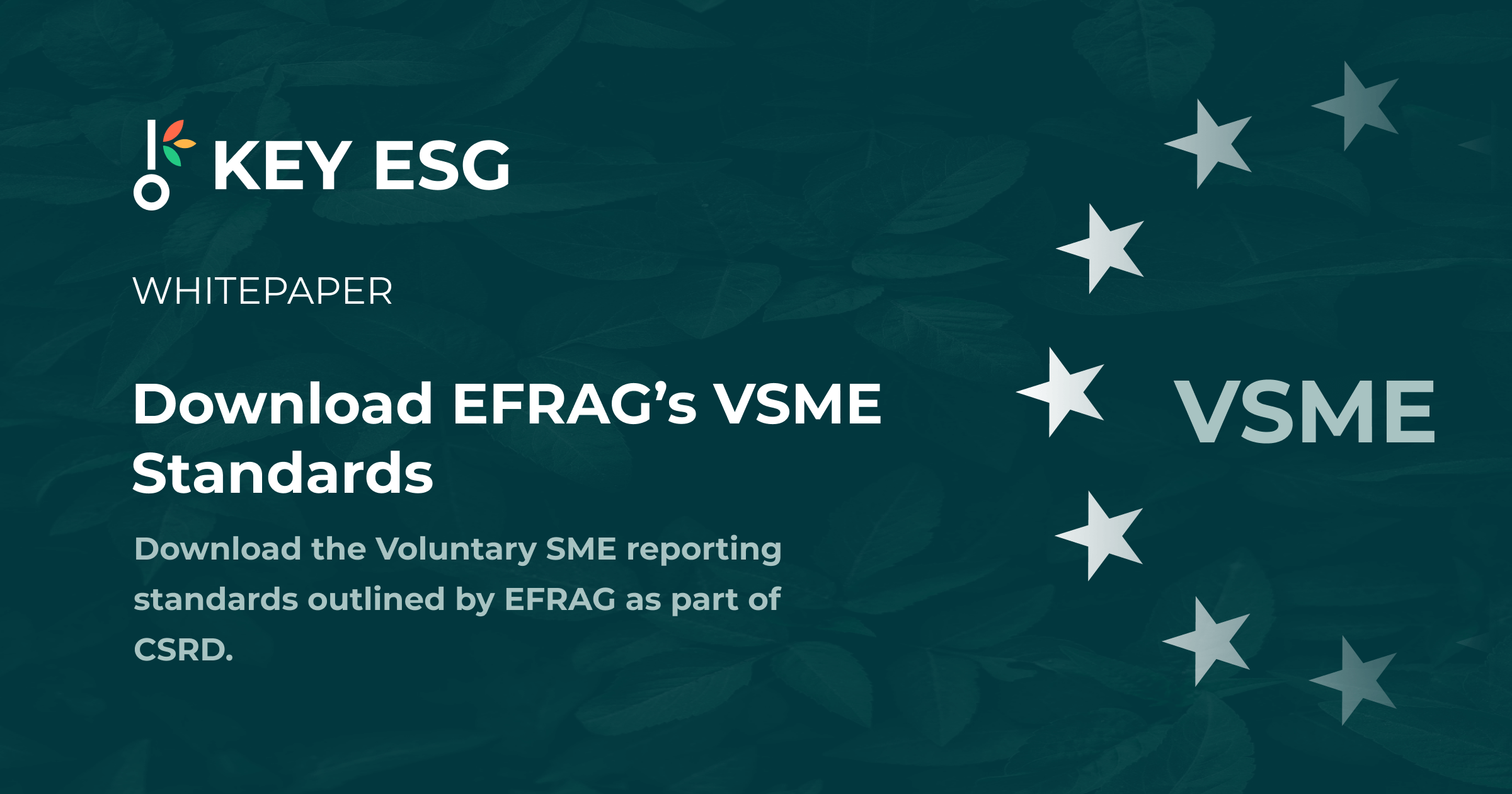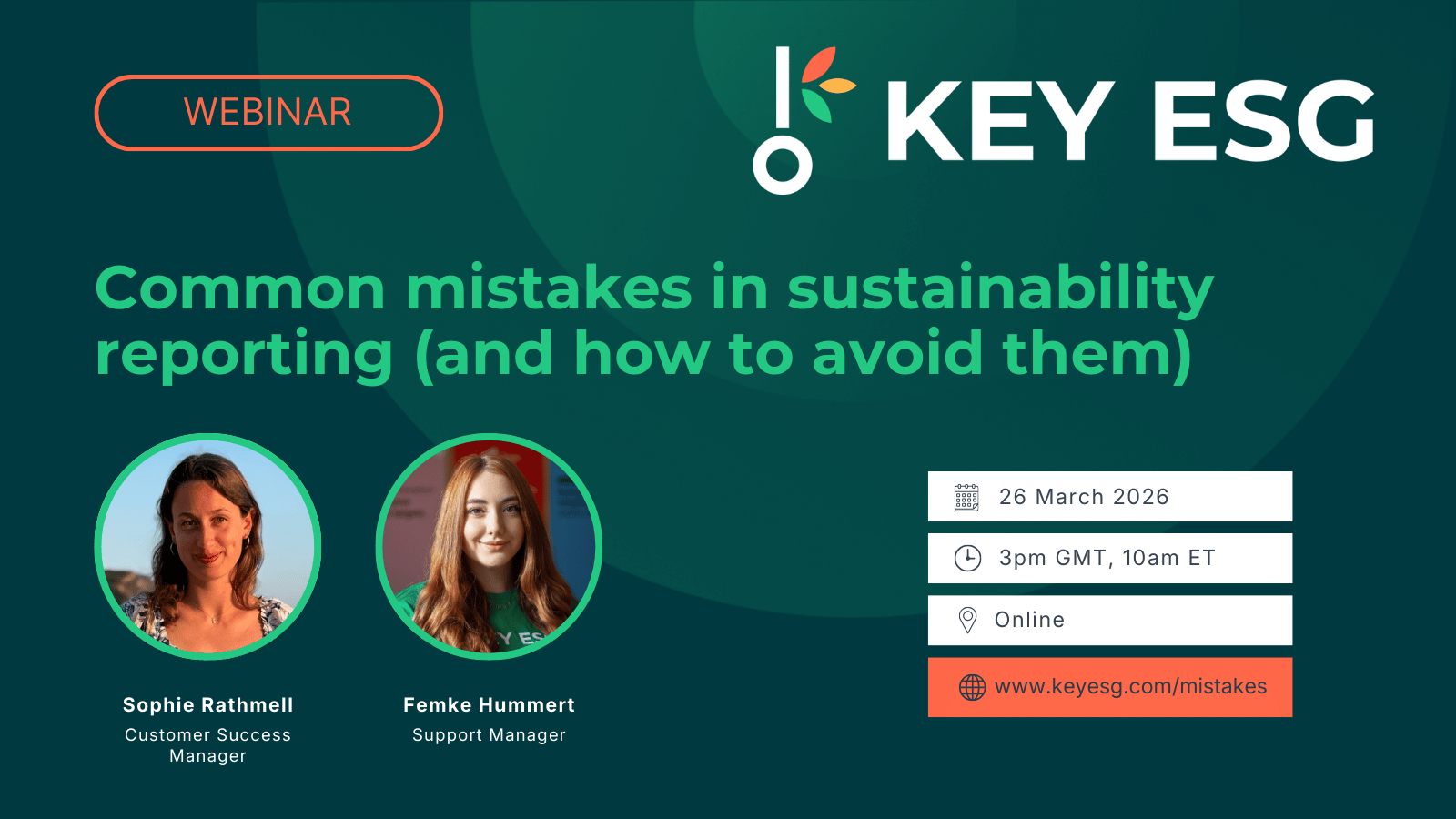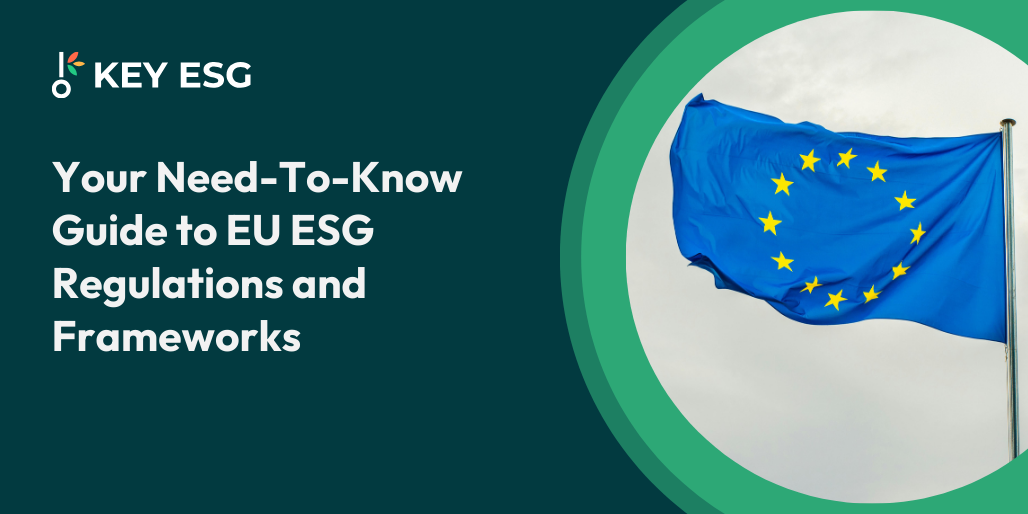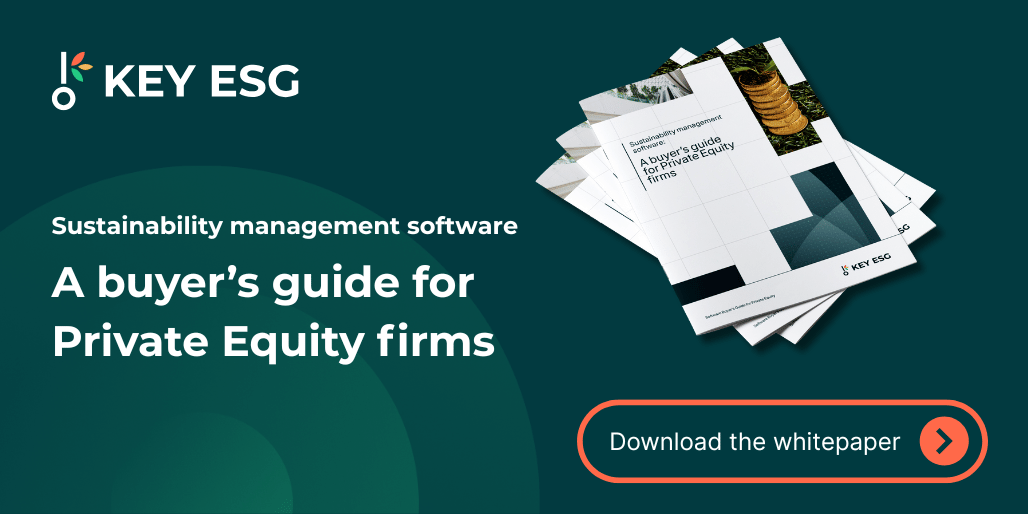
Introduction
With the uncertainty around the Corporate Sustainability Reporting Directive (CSRD) reporting deadlines, and more and more sector specific rules coming into effect, many smaller firms are already fielding sustainability questionnaires from stakeholders, clients, and investors.
The Voluntary Sustainability Reporting Standard for non-listed SMEs (VSME) has been developed to simplify these requests.
Created by the European Financial Reporting Advisory Group (EFRAG) at the European Commission’s request, it offers micro-, small- and medium sized enterprises (SMEs) a voluntary yet recognisable way to disclose key environmental, social, and governance (ESG) information.
To get started with the VSME standards, download EFRAG’s reporting template by submitting your details in the form below.
Why is the VSME necessary?
Large corporations required to submit CSRD metrics have to collect data from their supply chains. Instead of sending every supplier a homemade spreadsheet, the European Commission have decided it would be best to create one template. This template mirrors the big company rules, but is simple enough for a smaller companies to manage.
By issuing a standard template, stakeholders are able to speak the same language as their suppliers and simplify data collection. At the same time, suppliers can create a credible sustainability story that gets them ahead of the game for future (potentially mandatory) disclosures.
Who is the VSME for?
The VSME is geared towards non listed micro businesses and SMEs.
An undertaking is considered micro if it does not exceed two of the following thresholds:
i. €450,000 in balance sheet total
ii. €900,000 in net turnover
iii. an average of 10 employees
It is considered small if it does not exceed two of the following thresholds:
i. €5 million in balance sheet total
ii. €10 million in net turnover
iii. an average of 50 employees
And it is medium if it does not exceed two of the following thresholds:
i. €25 million in balance sheet total
ii. €50 million in net turnover
iii. an average of 250 employees
While the standard is completely voluntary from a legal perspective, many Tier 1 and Tier 2 suppliers to CSRD-reporting companies feel a strong obligation to adhere to it. Market pressures can make the VSME feel almost compulsory for suppliers working with larger entities.
Basic vs Comprehensive Modules
The Basic Module is generally chosen by micro-enterprises and suppliers to whom ESG metrics are less relevant. The module covers the minimum information that most stakeholders ask for, such as information on energy usage, greenhouse gas (GHG) emissions, pollution, biodiversity, workplace equality, health and safety, and corruption.
The Comprehensive Module takes a deeper dive and is for suppliers to organisations that require more detail. Datapoints include climate targets, human rights metrics, board diversity, pay ratios, environmental key performance indicators (KPIs), etc. This information should be submitted along with the Basic Module requirements.
Getting Started with VSME
If you’re contemplating getting started with the VSME standards, we recommend beginning with the basics and gradually working your way up.
- Download the explanatory whitepaper from the EFRAG website.
- Map what you’re already tracking (energy bills, payroll data, HR policies, etc.) to the Basic Module datapoints.
- Try to fill in any of the gaps and record your data in the spreadsheet which can be downloaded below.
- Choose to disclose some of this information on your website, or send the entire report directly to your stakeholders.
- Decide whether you’d like to upgrade to the Comprehensive Module once you have the basics running smoothly.
How KEY ESG can help
While the VSME is designed to simplify reporting, the template itself can be quite confusing.
KEY ESG enables medium and large organisations manage their sustainability data effectively so they can move from reporting to value creation. We empower our customers to turn sustainability into a competitive advantage. For more information about our all-in-one sustainability management platform, request a free demo.
And, as always, if you have any questions – big or small – feel free to reach out to one of our ESG experts.
Introduction
With the uncertainty around the Corporate Sustainability Reporting Directive (CSRD) reporting deadlines, and more and more sector specific rules coming into effect, many smaller firms are already fielding sustainability questionnaires from stakeholders, clients, and investors.
The Voluntary Sustainability Reporting Standard for non-listed SMEs (VSME) has been developed to simplify these requests.
Created by the European Financial Reporting Advisory Group (EFRAG) at the European Commission’s request, it offers micro-, small- and medium sized enterprises (SMEs) a voluntary yet recognisable way to disclose key environmental, social, and governance (ESG) information.
To get started with the VSME standards, download EFRAG’s reporting template by submitting your details in the form below.
Why is the VSME necessary?
Large corporations required to submit CSRD metrics have to collect data from their supply chains. Instead of sending every supplier a homemade spreadsheet, the European Commission have decided it would be best to create one template. This template mirrors the big company rules, but is simple enough for a smaller companies to manage.
By issuing a standard template, stakeholders are able to speak the same language as their suppliers and simplify data collection. At the same time, suppliers can create a credible sustainability story that gets them ahead of the game for future (potentially mandatory) disclosures.
Who is the VSME for?
The VSME is geared towards non listed micro businesses and SMEs.
An undertaking is considered micro if it does not exceed two of the following thresholds:
i. €450,000 in balance sheet total
ii. €900,000 in net turnover
iii. an average of 10 employees
It is considered small if it does not exceed two of the following thresholds:
i. €5 million in balance sheet total
ii. €10 million in net turnover
iii. an average of 50 employees
And it is medium if it does not exceed two of the following thresholds:
i. €25 million in balance sheet total
ii. €50 million in net turnover
iii. an average of 250 employees
While the standard is completely voluntary from a legal perspective, many Tier 1 and Tier 2 suppliers to CSRD-reporting companies feel a strong obligation to adhere to it. Market pressures can make the VSME feel almost compulsory for suppliers working with larger entities.
Basic vs Comprehensive Modules
The Basic Module is generally chosen by micro-enterprises and suppliers to whom ESG metrics are less relevant. The module covers the minimum information that most stakeholders ask for, such as information on energy usage, greenhouse gas (GHG) emissions, pollution, biodiversity, workplace equality, health and safety, and corruption.
The Comprehensive Module takes a deeper dive and is for suppliers to organisations that require more detail. Datapoints include climate targets, human rights metrics, board diversity, pay ratios, environmental key performance indicators (KPIs), etc. This information should be submitted along with the Basic Module requirements.
Getting Started with VSME
If you’re contemplating getting started with the VSME standards, we recommend beginning with the basics and gradually working your way up.
- Download the explanatory whitepaper from the EFRAG website.
- Map what you’re already tracking (energy bills, payroll data, HR policies, etc.) to the Basic Module datapoints.
- Try to fill in any of the gaps and record your data in the spreadsheet which can be downloaded below.
- Choose to disclose some of this information on your website, or send the entire report directly to your stakeholders.
- Decide whether you’d like to upgrade to the Comprehensive Module once you have the basics running smoothly.
How KEY ESG can help
While the VSME is designed to simplify reporting, the template itself can be quite confusing.
KEY ESG enables medium and large organisations manage their sustainability data effectively so they can move from reporting to value creation. We empower our customers to turn sustainability into a competitive advantage. For more information about our all-in-one sustainability management platform, request a free demo.
And, as always, if you have any questions – big or small – feel free to reach out to one of our ESG experts.





